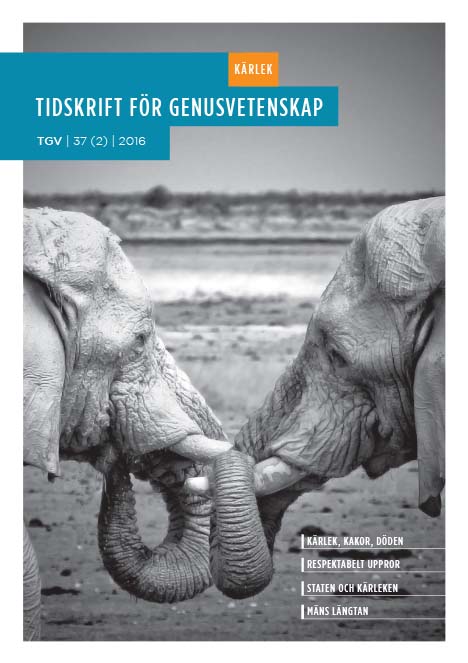Fri kärlek - för vem?
Respektabilitet och konstruktionen av "fri kärlek" i Frida Stéenhoffs dramatext Lejonets unge
DOI:
https://doi.org/10.55870/tgv.v37i2.3103Nyckelord:
Frida Stéenhoff, Lejonets unge, fri kärlek, respektabilitet, intersektionalitetAbstract
In this article, respectability and the construction of “free love” is investigated in Swedish feminist debater and playwright Frida Stéenhoff’s (1865–1945) drama Lejonets unge (1896). In 1897 the first production of the drama was set in the small town of Sundsvall in Sweden and caused a public storm because of its plea for free love for both men and women. Through an intersectional perspective, where the axes of class, gender, sexuality, religion, nationality and age are central and with a starting point in Beverly Skegg’s concept “respectability” I investigate how free love is constructed in the drama. I also link the construction of free love to the historical context of the debate concerning sexual morality and marriage, which was intense in society and literature in Scandinavia in the late 19th century.
Nedladdningar
Downloads
Publicerad
Referera så här
Nummer
Sektion
Licens
Författaren/författarna behåller copyright till verket.





